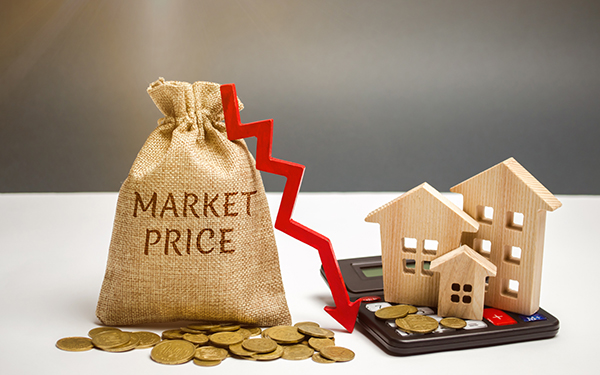
What does it really mean when you read a headline which mentions falling house prices? We hear this phrase so often that we are led to believe it! The media constantly churns out facts and figures to scare us all and warn of looming doom!
For most people, buying a house is a long-term investment and if house prices rise or fall it’s always best not to focus on the headlines, instead take a step back and put things in perspective.
If we look at last year, house price increases indeed dipped due to interest rates rising and the impact of the minibudget. In 2022 house prices grew by 2.8% over all for the year, falling from a growth rate of 4.4%.* Yet according to the office for National Statistics average UK prices increased by 12.6% over the year to October 2022. So, it depends on who you ask! Not to mention regional differences and property type - often houses increase in value more rapidly than flats.
Predictions
Zoopla predicts a 5% fall in house prices, while Lloyds bank gives a higher figure of 9%. Many analysts agree house prices will fall for the next two years but rise again in 2025. Perhaps more optimistically the housing market could simply level out, with smaller drops in house prices. There is still a shortage of houses and therefore this will stabilise the market. The housing market is simply returning to a pre-pandemic norm with more realistic interest rates. The good news is without rapidly rising prices, there is more long-term stability.
The good news
Ultimately if you are selling, the value of your home will have gone up considerably over the past years so if it falls a little you have still gained. If you are about to purchase your first property and still gathering the deposit and you know it may take a little longer, at least house prices are not rocketing which gives you a little more time. And when you are in a position to make an offer, you may find that you have a lot more wriggle room in terms of making a lower offer and saving some money.
Long term
Buying a house is a long-term investment for most of us and even large drops in value will not create big gains or losses. For example, if you buy a house for £200,000, typically the deposit is 10%, £20,000. If you plan to wait thinking house prices will drop by 10% you have saved £2000, in terms of a deposit. In a long-term investment, this is not a significant amount of money.
If the worst does happen, you buy a house tomorrow and house prices suddenly drop by 10% unless you are planning on selling within the next 2 years, with house prices set to rise again in 2025 then again realistically you have lost £2000, temporarily before gaining again. In both the above scenarios, in the long term, you will still gain.
Local Area
Properties in St Johns Wood had an overall average price of £1,628,759 over the last year. The majority of sales in St Johns Wood during the last year were flats, selling for an average price of £1,128,422. Terraced properties sold for an average of £3,080,623, with semi-detached properties fetching £4,045,143. Overall, sold prices in St Johns Wood over the last year were 6% down on the previous year and 7% up on the 2018 peak of £1,524,581. However, with our location being close to Central London and the general demand for buyers looking to be here, combined with the continued international demand, especially while the Pound is weak, there has been continued sales and lots of positivity.
Conclusion
The future looks good, yet even if there is a sudden drop in the grand scheme of things, it’s not such a bad thing! In fact, does it even matter? What’s important is finding a house you can call home and cherish the memories you make in it.
Looking for your first home or your forever home? Browse our properties.

Nationwide Price index*